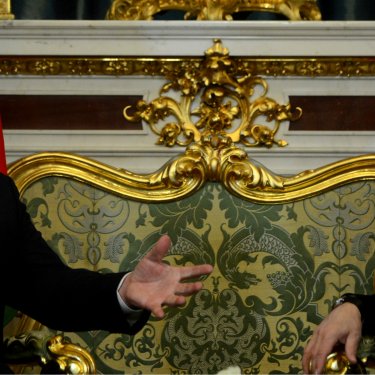Five-year suspended jail sentences for three Belarusian bloggers

The five-year suspended jail sentences that three Belarusian bloggers received today from a court in Minsk on charges of “inciting hatred” are incompatible with international standards on freedom of expression, Reporters Without Borders (RSF) said.
The three bloggers – Dzmitry Alimkin, Yury Paulavets and Syarhey Shyptsenka – were released after being held provisionally for 14 months but the sentence will restrict their freedom for the next three years. If they fail to report regularly to the police or leave the city without permission, they could be made to serve the five-year jail term.
“These sentences would be appropriate for dangerous criminals, to deter them from reoffending, but not for bloggers who were prosecuted for expressing controversial views,” said Johann Bihr, the head of RSF’s Eastern Europe and Central Asia desk. “Under international standards on freedom of expression, there is no justification for such disproportionate sentences. We call for their convictions to be overturned on appeal.”
29.12.2018 - RSF calls for release of three Belarussian bloggers
Reporters Without Borders (RSF) calls for the immediate release of three bloggers – Dzmitry Alimkin, Yury Paulavets and Syarhey Shyptsenka – who have been held by the Belarusian authorities for the past three weeks for criticizing the government’s supposed “Russophobic” tendencies.
Alimkin, a school supervisor in the southwestern city of Brest, and Paulavets, a university professor in Minsk, were arrested on 6 December. Shyptsenka, the editor of the magazine Novaya Ekonomika and correspondent for the Russian news agency Regnum, was arrested three days later.
All three are facing up to 12 years in prison on charges of “inciting racial hatred” in their posts on the Russian news websites Regnum, Lenta.ru and EADaily.
Paulavets’ posts accused the government of stirring up anti-Russian sentiment in order to divert the public’s attention from economic problems. Shyptsenka deplored the government’s failure to combat Belarusian nationalism and the assertion of a national identity.
Alimkin questioned the existence of a Belarusian nation and called for unification with Russia. He and Shyptsenka drew parallels with the situation in Ukraine and suggested that Minsk’s supposed hostility towards Moscow could be disastrous for Belarus.
“The posts of these three bloggers are controversial but that does not justify their imprisonment,” said Johann Bihr, the head of RSF’s Eastern Europe and Central Asia desk. “According to international standards, their provisional detention is neither necessary nor proportionate. We ask the Belarusian authorities to release them and to ensure they get a fair trial, which will require an independent expert evaluation of the offending posts.”
According to article 19 of the International Covenant on Civil and Political Rights, which Belarus has ratified, any restrictions on freedom of expression must be legal, legitimate and necessary.
The Johannesburg Principles specify that, if authorities want to restrict freedom of expression on national security grounds, they must be able to establish a direct link between the offending comments and potential violent actions.
Since the war in Ukraine and Crimea’s annexation, the Belarusian government has become increasingly concerned about the influence of Russia’s leading media on Belarusian public opinion.
The authorities have nonetheless insisted that they make no distinction between pro-Russian and anti-Russian comments. Eduard Palchys, a young blogger, was sentenced to 21 months of “surveillance” on 28 October for criticizing Russian foreign policy in his blog posts.



